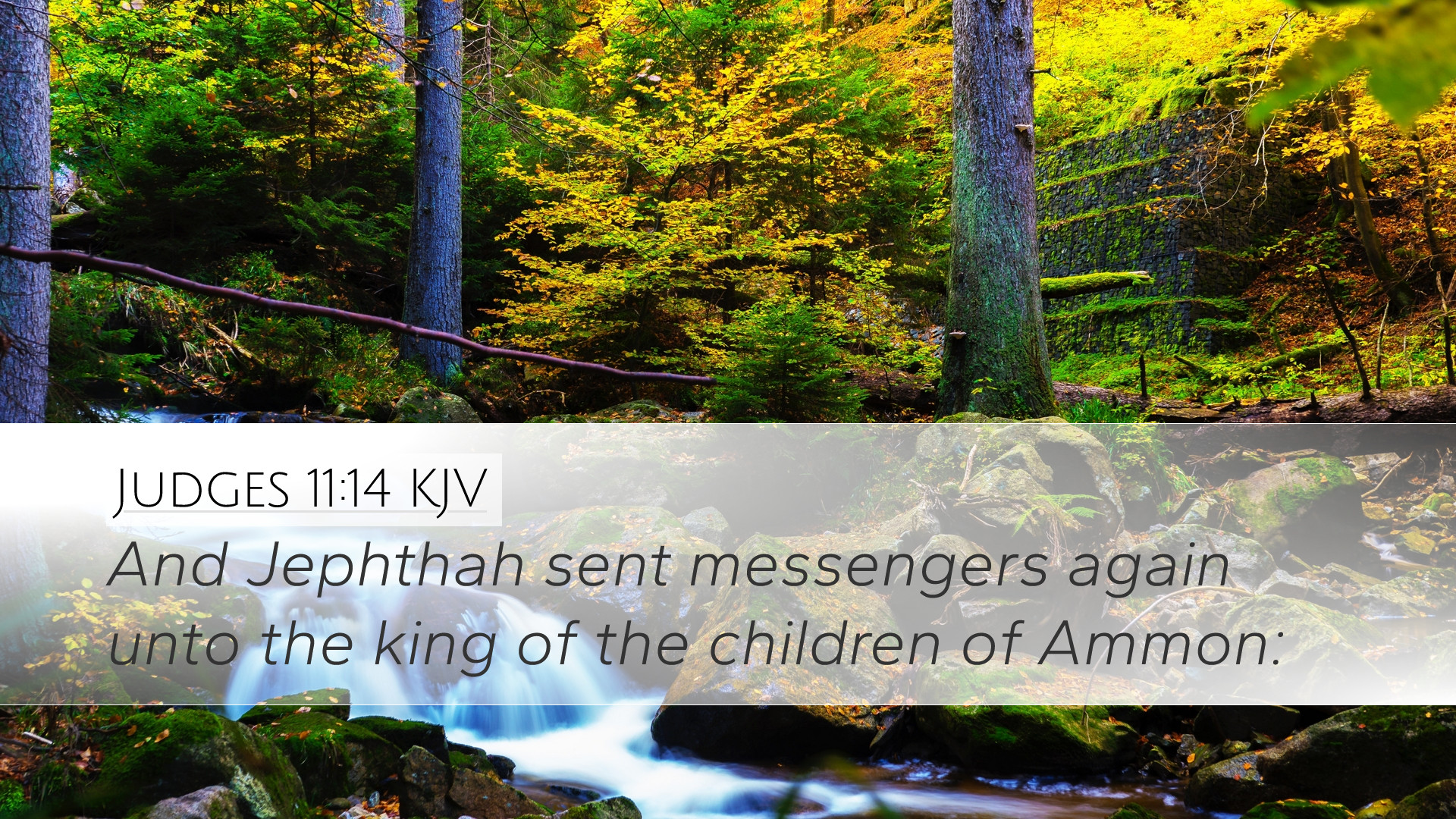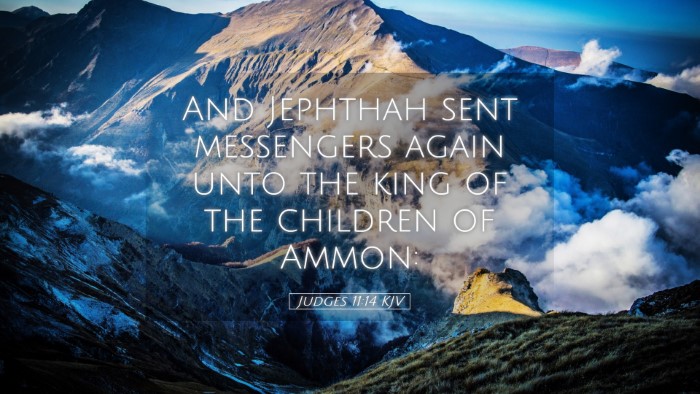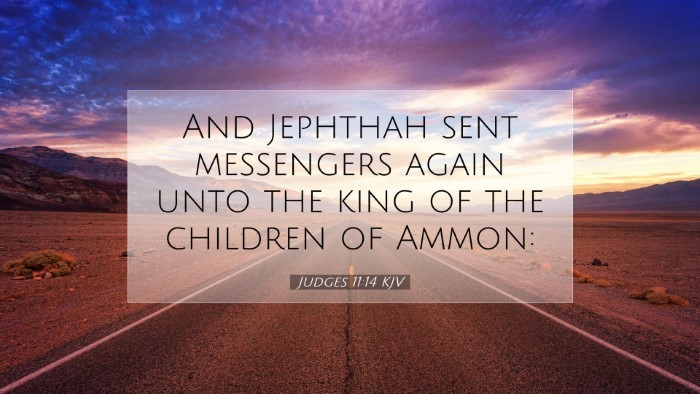Commentary on Judges 11:14
Judges 11:14 reads, "And Jephthah sent messengers again unto the king of the children of Ammon:" This seemingly simple act serves as a profound pivot in the narrative of Jephthah, encapsulating themes of conflict resolution, communication, and the unfolding of divine providence.
Context and Background
The passage occurs in the midst of Israel’s ongoing struggles against the Ammonites, a recurring theme in the Book of Judges. Jephthah, a judge of Israel, embodies a complex character marked by both strength and vulnerability. His background as a son of a harlot and a warrior adds depth to his leadership amidst societal rejection.
Insights from Matthew Henry
Henry's perspective emphasizes the importance of Jephthah's diplomatic approach as a leader. His decision to communicate with the king of Ammon demonstrates a critical aspect of leadership—seeking dialogue over immediate conflict.
- The Art of Negotiation: Jephthah's use of messengers highlights the significance of diplomacy in resolving disputes. Henry suggests that this act is not mere formality; it is a quest for understanding and justice.
- Divine Guidance: The prelude to this message also illustrates Jephthah's reliance on God. Henry posits that Jephthah is aware of his divine mandate and seeks to fulfill it through peaceful means before resorting to war.
Understanding the Message through Albert Barnes
Barnes' commentary delves into the particulars of the conflict. He notes that Jephthah’s choice to send messengers again indicates a strategic maneuver, showing both perseverance and a desire for peace.
- Persistence in Efforts: Barnes suggests that Jephthah is committed to seeking peace—a quality essential for leaders. His repeated attempts to engage the Ammonite king reflect a proactive stance in leadership.
- Historical Context: The backstory of the land in question plays a critical role in the discourse. Barnes elaborates on the injustices suffered by Israel and how Jephthah positions himself as both a defender and a diplomat.
Insights from Adam Clarke
Clarke's observations interweave theological reflections with historical analyses, shedding light on Jephthah's character as well as the broader implications of his actions.
- Character Study: Clarke explores Jephthah's emotional state, recognizing he is both a warrior by nature and a leader wrestling with his past. This duality is crucial in understanding his approach to conflict with Ammon.
- Theological Undertones: Clarke emphasizes that every confrontation in the narrative carries spiritual significance. Jephthah's documented interactions are not merely political; they reveal God's sovereignty influencing human affairs.
Thematic Elements
As students of Scripture, the verses around Judges 11:14 illustrate critical themes relevant for contemporary theological discourse.
- Leadership and Authority: The passage confronts the essence of leadership defined not solely by power but by wisdom and negotiation. Jephthah’s actions encourage leaders today to engage in dialogue rather than warfare.
- Conflict and Resolution: The ongoing conflict with the Ammonites underscores the recurring struggles within the community of Israel. Jephthah’s method reflects a profound understanding that human conflicts often require patience and dialogue.
- The Role of Divine Justice: Jephthah’s appeal to history—the validity of Israel’s claim to the land—is framed as a theological assertion of justice. This serves as a reminder of God’s overarching plans amid human strife.
Application for Pastors and Theologians
The narrative of Jephthah provides valuable lessons applicable to pastoral ministry and theological education:
- Encourage Dialogue: Like Jephthah, church leaders are called to foster environments of peace. Encouraging discussions, even with those in opposition, can lead to fruitful outcomes.
- Model Resilience: Jephthah’s commitment to resolve conflict is a significant lesson in resilience for pastors. Navigating conflicts requires steadfastness and a willingness to seek solutions.
- Highlight God's Sovereignty: In teaching this passage, theologians should stress the divine context of all endeavors. Understanding that God has a purpose in even the most challenging situations reaffirms faith in His plans.
Conclusion
Judges 11:14 encapsulates a pivotal moment in the narrative of Jephthah, portraying a leader who seeks dialogue before conflict. Drawing insights from esteemed commentators like Matthew Henry, Albert Barnes, and Adam Clarke enriches our understanding, emphasizing both the historical and theological dimensions of the text. For pastors, students, and theologians, this passage serves as both a reflection of God’s providence and a model of leadership.


